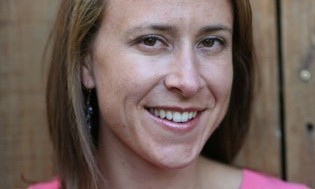
Genetics will be a cheap and critical part of daily life, 23andme co-founder Anne Wojcicki has told the SXSW festival, claiming that genetics should be used for preventative medicine to bring down the cost of healthcare.
Sketching out the scale of an industry worth more than $3 trillion, Wojcicki said that working on Wall Street, she had seen how the industry has a profit incentive for illness, making money from everything from flu to diabetes and obesity.
“Obesity is awesome from a Wall Street perspective,” she said. “It’s not just one disease - there are all sorts of related diseases to profit from.”
Wojcicki described how the industry makes money on everything from sleep apnoea and diabetes drugs to specialist bathing systems and wound care. Growth is good for business - even if that growth is increased rates of obesity and related diabetes that is predicted to rise to 10% of the world’s population.
Part of the economic incentive is that treatment makes more money than prevention. Five per cent of people are pre-disposed to blood clots, yet doctors don’t routinely screen women who take birth control pills because it is cheaper to treat them if they develop a blood clot.
Wojcicki said she was dismissed by one doctor who said: “The problem with 23andMe is that you generate non-billable information.” The US health industry generates $2.7 trillion in expenses, so the aim is to maximise the billing.
We are pioneers
Wojcicki admitted the move by the US Food and Drug Administration service in November to stop 23andMe marketing its genetic testing service had hampered the company.
“It has slowed up the number of people signing up,” she said. “But we have 650,000 people in our database and are being inundated with requests from academics and foreign partners. We have more of this data than anyone else in the world…
“We are pioneers. We’ve had a lot of ups and downs but we have lots of tenacity to push on through. It will take time money and effort to figure out the path forward.” That path involves submitting applications that detail 23andme as a medical device, she said.
Genetics are the basis for personalised medicine
“23andMe set out to try and change healthcare - this is not an easy business. This is not coffee shop in Austin. The system sucks and we have to do something to try to change it,” she said, adding that 23andMe is about preventative healthcare.
“The principle is that genetic information is the basis for personalised medicine - you don’t want to gee your child benadryl on an overnight flight to Europe if you know that it will make them hyper. Knowing your genetic health risks will help you make better decisions.”
The moment of discovery, or receiving details of any genetic conditions through a test, can become a trigger moment for someone to change their lifestyle and improve their health. She also explained that by choosing to allow their health data to be aggregated and studied by 23andMe’s scientific research team, customers are contributing to a giant pool of health care data that can help understand inherited diseases and conditions.
Genetics is going to become extremely cheap and part of our daily life, she said. In China, the Beijing Genome Institute is now the largest genome testing firm in the world, and Saudi Arabia, the UK and others are all strong in this area.
Google monetizing gut bacteria?
Interviewer Kara Swisher asked whether it was ethical that 23andme - whose investors include Google - should make money from gathering genetic information. “Do you need all this information? I don’t love Google having data on my gut bacteria - they will figure out how to monetize my gut bacteria.”
Wojcicki said 23andMe is legitimate in charging because it is providing a service. “One of the reasons we went direct to consumer is so that you own the data. If your insurance accompany pays they own it, but if you pay you own your own data, and if you then want to share it that’s your right.
“Privacy is the foundation of what we do, but we have found that people want to share this information - not on Facebook necessarily but with physicians and family… People don’t have to participate in our research, but some people have begged us to use their data because they have a fatal disease and want to do as much as they can to help future generations.”
• Google’s Sundar Pichai on wearable tech: “We’re just scratching the surface”

